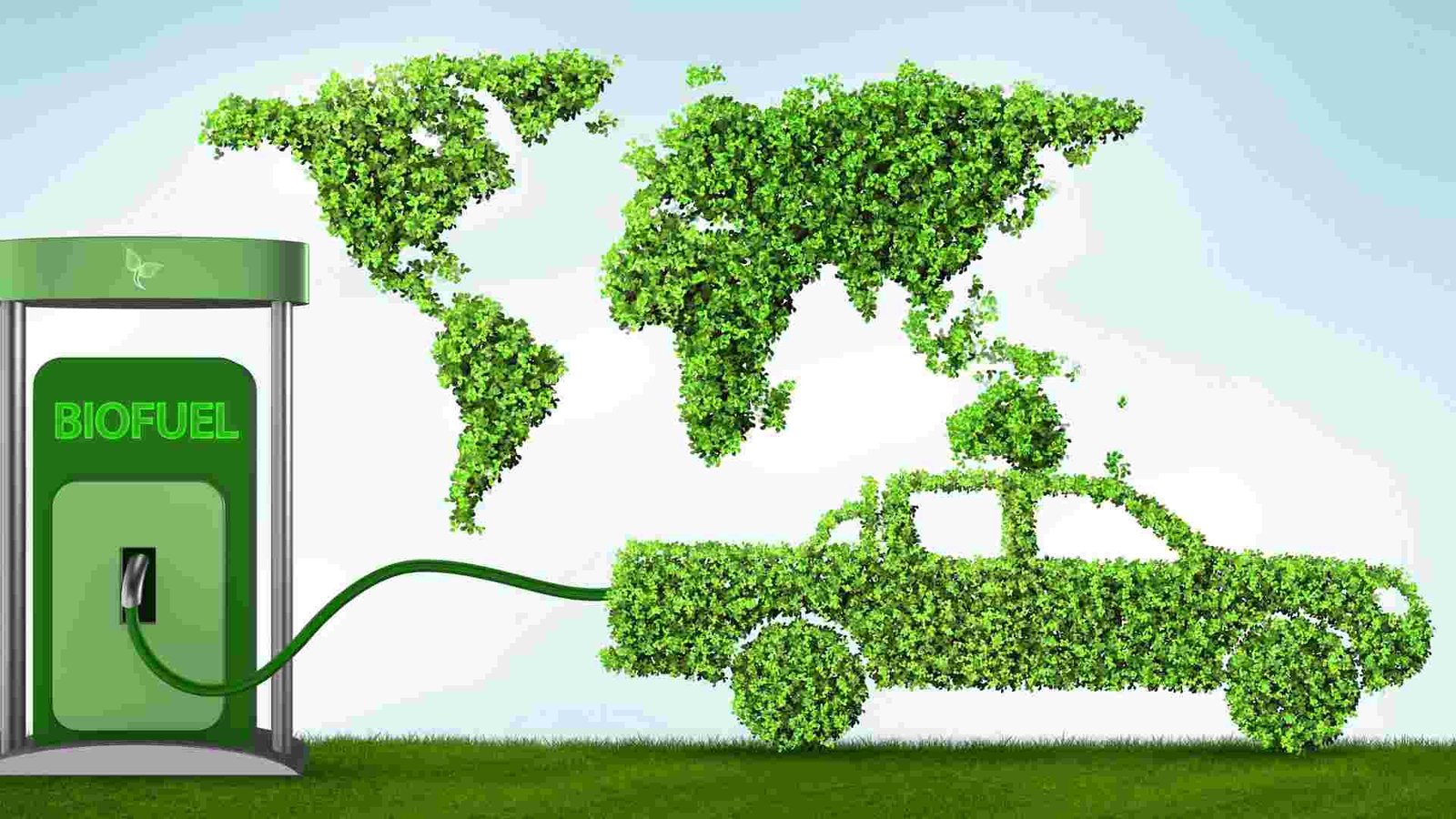In today’s world, the emphasis on sustainable living and eco-friendly practices has extended to outdoor cooking and grilling adventures. As outdoor enthusiasts and casual grillers alike seek more environmentally-conscious options, sustainable fuel options have become a vital part of this movement. From eco-friendly grilling fuels to innovative solar-powered solutions, the array of choices offers exciting ways to enjoy your barbecue while minimizing ecological impact. This guide will explore these options in depth, helping you make informed decisions about your outdoor cooking setup, whether you’re comparing pellet vs. charcoal vs. gas, exploring solar-assisted cooking, or trying out biofuel grill solutions.
Exploring Sustainable Fuel Options for Grilling: A Comprehensive Guide

When considering sustainable fuel options for your outdoor cooking, the landscape is broad and diverse. Gone are the days when traditional charcoal or propane were the only options available. Today, many eco-conscious alternatives emphasize renewable resources, low emissions, and renewable energy sources, aligning grilling with sustainability principles. These alternatives not only reduce your carbon footprint but also often enhance taste and authenticity—think smoky flavors from sustainably harvested wood pellets or the clean burn of biofuels. It’s essential to evaluate the lifecycle emissions, sourcing practices, and performance of each fuel type to select the optimal sustainable option for your barbecue needs.
From biofuels to solar cooking, the industry is innovating rapidly to offer safer, more sustainable, and equally effective tools for outdoor chefs. Advances in technology are making solar-assisted cooking increasingly viable, while environmentally responsible fuel sources like biofuels are transforming traditional grilling. As we delve into each category, you’ll discover the benefits and challenges associated with each fuel, empowering you to make smarter, greener choices that resonate with your values and outdoor lifestyle.
Eco-Friendly Grilling Fuels: Reducing Your Environmental Impact

Choosing eco-friendly grilling fuels means prioritizing options that produce minimal greenhouse gases and have sustainable sourcing practices. These fuels include options like sustainably harvested wood pellets, compressed biomass, and even waste-derived fuels that utilize recycled materials. Such fuels significantly lower carbon emissions compared to traditional charcoal or propane, mainly because they are derived from renewable sources or by-products of other industries. Plus, many eco-friendly grilling fuels are designed to burn cleaner, producing less smoke, soot, and toxic emissions, making outdoor cooking healthier not only for the environment but also for your family and neighbors.
Beyond the environmental benefits, eco-friendly fuels often enhance the overall grilling experience. For instance, wood pellets, when sourced responsibly, can impart a rich, smoky aroma that elevates the flavor profile, rivals traditional wood smoking, and offers consistency and convenience. Furthermore, increasing awareness around sustainable sourcing has led manufacturers to implement strict standards and eco-labels, allowing consumers to make conscientious choices. Transitioning to these fuels supports global efforts to combat deforestation and reduce reliance on fossil fuels, vital steps toward a sustainable outdoor lifestyle.
Pellet vs. Charcoal vs. Gas: A Comparative Analysis of Grilling Fuels

The debate of pellet vs. charcoal vs. gas is central to understanding sustainable outdoor cooking. Each fuel type offers distinct advantages and environmental considerations, making it crucial to analyze their performance through an eco-conscious lens. Pellet grills burn compressed wood pellets, which are often made from sawdust and wood waste, making them a renewable and carbon-neutral option when sourced responsibly. They also offer precise temperature control, ease of use, and consistent heat, presenting a compelling case for sustainable grilling.
Charcoal, especially when derived from sustainably managed wood sources, can offer a genuine smoky flavor that many grill aficionados desire. However, traditional charcoal production releases a significant amount of carbon dioxide and black carbon particles, making it less eco-friendly overall. Conversely, gas grills using propane or natural gas burn cleaner than charcoal but still rely on fossil fuels that emit greenhouse gases. The emerging focus, however, is on greener versions of gas—like biogas or renewable natural gas—that promise lower emissions and a more sustainable profile. Ultimately, selecting between pellet vs. charcoal vs. gas involves balancing flavor preferences, convenience, and environmental impact.
While pellet grills excel in efficiency, consistency, and lower emissions, charcoal is admired for its flavor profile but faces environmental scrutiny. Gas grills strike a middle ground thanks to their convenience and cleaner burn, especially if paired with renewable gas sources. Consumers committed to ecological responsibility should consider these factors when choosing, aiming for options that align with their sustainability goals without compromising outdoor grilling enjoyment.
Harnessing Solar Power: The Potential of Solar-Assisted Cooking Solutions
The concept of solar-assisted cooking is an inspiring innovation, harnessing abundant solar energy to power outdoor grill and stove setups. This approach aligns perfectly with sustainable fuel options, utilizing an entirely renewable resource that produces no emissions during operation. Modern solar cooking devices incorporate photovoltaic panels or solar thermal collectors to generate heat, allowing outdoor chefs to prepare meals with minimal environmental impact. Though still emerging in mainstream popularity, solar-assisted systems are increasingly practical for sunny climates and can operate alongside traditional fuels as a complementary method.
Solar-powered outdoor cooking offers remarkable benefits beyond sustainability. It reduces dependency on grid electricity or traditional fuels, enhances energy independence, and lowers operational costs. Additionally, solar-assisted grills and stoves are silent, od filler-free, and contribute to cleaner air quality. As technology continues to evolve with improved efficiency and portability, solar-assisted solutions are poised to become a vital part of eco-friendly outdoor grilling, particularly for eco-conscious campers, outdoor events, and homes seeking a greener lifestyle. Combining solar with other sustainable methods can expand your outdoor cooking repertoire while fulfilling your commitment to environmental stewardship.
Clean-Burning Outdoor Stoves: Efficient and Environmentally Sound Alternatives
Moving beyond traditional grills, clean-burning outdoor stoves represent a significant advancement in sustainable outdoor cooking technology. These stoves typically utilize advanced combustion techniques, such as catalytic converters or forced-air systems, to ensure complete combustion of fuels, producing minimal smoke, soot, and emissions. Their efficiency means less fuel consumption and lower pollutant output, making them suitable for eco-conscious users who want reliable performance with reduced environmental impact. Whether fueled by biomass, biofuels, or renewable gases, these stoves exemplify a commitment to sustainability without sacrificing practicality.
Furthermore, clean-burning outdoor stoves are designed to be portable, durable, and adaptable to different fuels, making them ideal for wilderness adventures, camping, or backyard use. Their eco-friendly design often incorporates recyclable materials and promotes responsible fuel management practices. By adopting such innovative cooking solutions, outdoor enthusiasts can enjoy delicious meals while aligning their culinary habits with environmental priorities, contributing positively to global efforts for cleaner air, reduced greenhouse gases, and sustainable living.
Biofuel Grill Solutions: Innovation in Sustainable Outdoor Cooking
Biofuel grill solutions represent the cutting edge of sustainable outdoor cooking, leveraging bio-based fuels derived from organic waste, crops, or algae. These fuels boast a low carbon footprint, as they are part of a closed carbon cycle—absorbing CO2 during growth and releasing it when burned. Innovations in biofuel technology have enabled the development of ready-to-use bioethanol, biodiesel, and other renewable fuels compatible with conventional grills or specialized biofuel appliances. These options provide an excellent alternative for those passionate about reducing fossil fuel reliance while still enjoying the flavor and experience of outdoor grilling.
The adoption of biofuel grill solutions not only reduces emissions but also encourages responsible waste management and resource recycling. For example, waste vegetable oil converted into biodiesel can power outdoor stoves efficiently. Moreover, biofuel options often burn cleaner, produce less soot, and generate minimal indoor and outdoor air pollution. These advantages are complemented by advancements in biofuel production techniques, such as algae-based fuels, which promise renewable, scalable, and sustainable outdoor cooking options. Incorporating biofuels into your grilling routine represents a forward-looking approach that marries culinary tradition with environmental responsibility.
Conclusion
As awareness of environmental issues grows, so does the desire for more sustainable and eco-friendly grilling options. From eco-friendly grilling fuels to pellet vs. charcoal vs. gas comparisons, the landscape is rich with options that align outdoor cooking with sustainable living principles. Solar-assisted cooking offers a renewable energy alternative that minimizes emissions, while clean-burning outdoor stoves and biofuel grill solutions further exemplify innovations that promote efficiency and environmental responsibility. Embracing these diverse sustainable fuel options allows outdoor enthusiasts to enjoy the culinary joys of grilling while actively reducing their ecological footprint, ultimately contributing to a healthier planet for future generations.






